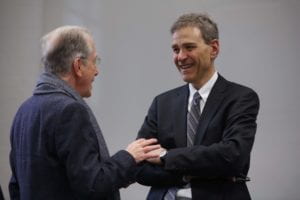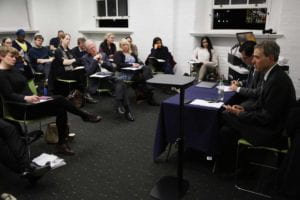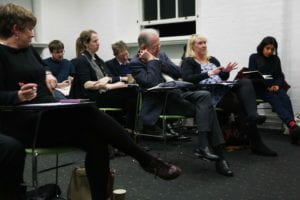
Our library collection, like our LLB programme itself, is very forward-thinking. We do not duplicate old law libraries with shelf after shelf of collections of law reports, legislation and paper journals, all gathering dust through lack of use. For environmental reasons amongst others, we don’t want a hugely paper-based collection. So we have decided to go digital.
One of the major benefits of this is that students will be able to access core student textbooks digitally, at any time, and for as long as required. Students here will not be competing against each other for access to the same limited number of resources. They can access them online stress-free.
Going digital
Law has always been ahead of the game when it comes to digital resources and so for many years libraries in law firms have been getting larger digitally, while getting smaller physically. Our collection very much mirrors that model. As a result, we have a very real-world collection, with a strong emphasis on digital resources.
Like most academic libraries we have subscriptions to Westlaw, Lexis Library, HeinOnline and Nexis.
But unlike most academic libraries we have also gone for a subscription to Practical Law – a service most law firms opt for. And now that Practical Law and Westlaw are partner databases, they integrate seamlessly.
We have also gone for large collections of eJournals and eBooks from major law publishers, eg over 1,500 OUP titles, over 3,000 CUP titles and all the newly published Hart eBooks.
We are also one of the first universities to buy access to Sweet & Maxwell’s set of student eTextbooks (all of which are fully integrated into Westlaw, with hyperlinks from the text directly into relevant cases and legislation).
Fully available collection
 We have made sure that all the modules on the LLB have core student textbooks available digitally, so that there will be no waiting to access these textbooks and you can access them from anywhere in the world. We have paper copies of key student textbooks of course.
We have made sure that all the modules on the LLB have core student textbooks available digitally, so that there will be no waiting to access these textbooks and you can access them from anywhere in the world. We have paper copies of key student textbooks of course.
You can also access hard copies of the All England Law Reports. We are delighted to have this fundamental collection amongst physical resources in our library.
Preparation for the workplace
Sometimes digital collections can take a bit of know-how to be able to use them fully. Students will be given as much help and training as they need from Greg Bennett, the law librarian, who has worked at magic circle firm, Slaughter and May and the Institute of Advanced Legal Studies, amongst other places.
The teaching of these essential legal research skills is fully integrated in the 21st Century Legal Skills module in Year 1.
So by the end of their time at Goldsmiths, students will be fully prepared to use the kind of legal libraries that they will have in their careers ahead.
The main advantages of our new collection at Goldsmiths are that it is fully bespoke to the needs of the students, teaching them how to use the actual resources that they are likely to encounter in their careers.
At Goldsmiths, we like to do things differently, and our law library will be something we will be very proud of in that respect.
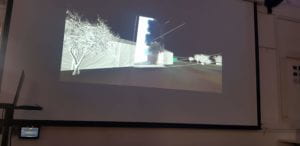

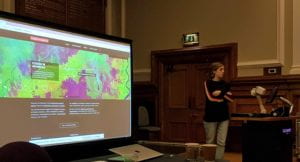
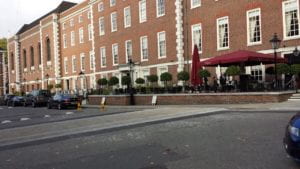
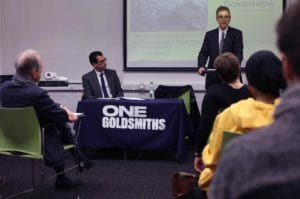
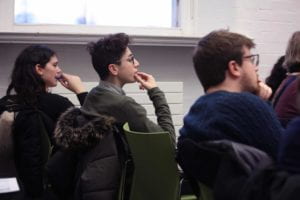
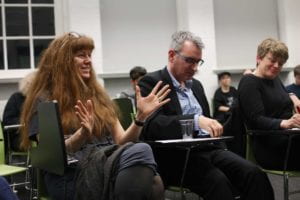
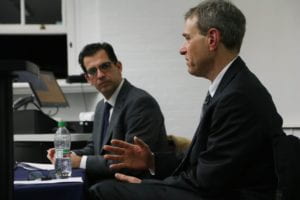 To reduce mass incarceration in the US, punishment for violent crime needed to be reduced, he argued. Criminal law should think more deeply, in other words, about whether there was indeed rational justification for the disproportionate emphasis on violent crime (and excessive punishment for those committing violent crime).
To reduce mass incarceration in the US, punishment for violent crime needed to be reduced, he argued. Criminal law should think more deeply, in other words, about whether there was indeed rational justification for the disproportionate emphasis on violent crime (and excessive punishment for those committing violent crime).